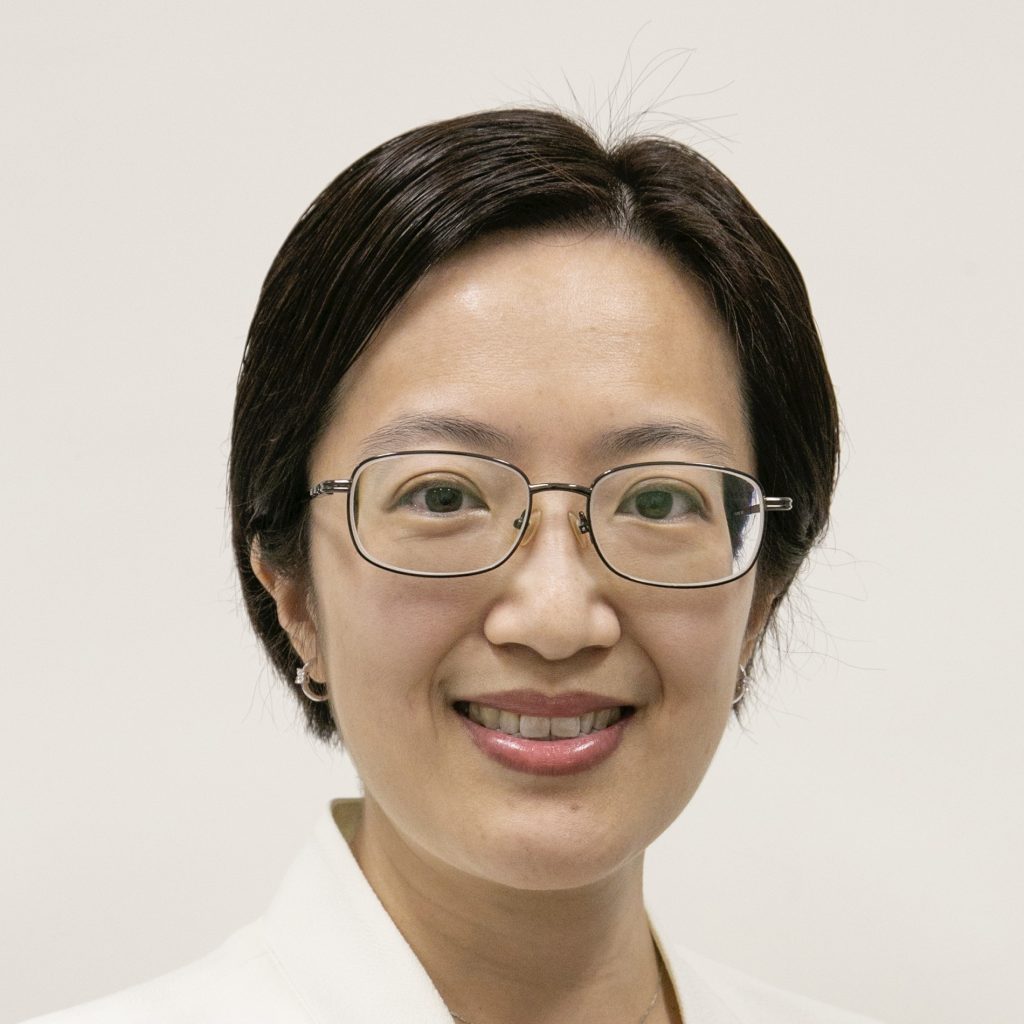May 2024 | Volume 25 No. 2
Drama Queens
Listen to this article:
During the COVID-19 pandemic, programmes requiring students to interact with patients were seriously hampered. Zoom consultations helped a little, but they could not effectively replicate being in a clinic with a patient who could be unpredictable or uncommunicative. So how could students be prepared for clinical sessions?
Professor Estella Ma Pui-man of the Human Communication, Learning, and Development Unit in the Faculty of Education drew inspiration from her own enjoyment of drama and reached out to professional actors and the School of Drama of the Hong Kong Academy for Performing Arts (HKAPA) to take on roles as simulated patients. They were given scripts outlining their characters and clinical symptoms, and the expected learning outcomes for speech-language pathology students. They were also shown videos of actual patients. Then they came to the school to meet with students.
During the simulated clinic, the actor-patients were examined and treated by students, then gave students feedback from the patient’s perspective. Questionnaires administered before and after the simulated sessions found students’ levels of self-perceived clinical skills and confidence increased by more than 70 per cent.
The success of the experiment led to two pilot runs funded by Teaching Development Grants and, this year, the formal incorporation of the programme into the Bachelor of Science in Speech-Language Pathology curriculum under the title ‘SiMulation with ActoR Teachers@ HKU Speech-Language Pathology’ (SMART@HKU SLP).
“We have very good evidence that simulation-based learning promotes better bridging for students between theory and clinical practice, both from students and our clinical educators who say it is very useful,” Professor Ma said.
Dropping the blank face
“Previously, students entered the real-world clinic directly from the classroom, apprenticing with working professionals. Now, from Years 2 to 4, they can practise their soft and hard skills with simulated patients before and during their clinical training.
Scenarios are wide-ranging, such as a parent or domestic helper with a child who has autism spectrum disorder with a speech disorder, an elderly patient with dementia who is restrained in a hospital chair and unmotivated for treatment, or a stroke victim whose faculties are intact but cannot speak or swallow properly.
In Year 3, students learn how to collect background information, for instance from simulated caregivers about their child’s developmental milestones, and how to identify the risk factors for speech and language problems. In Year 4, students interact with simulated patients with differing cognitive abilities, and work on diagnosing speech, language and swallowing problems. There is also a simulated ward, with medical charts and other paraphernalia, that provides a stepping stone to Year 5, when students move into hospitals.
A key element of the programme is the debriefing sessions, when the actors give feedback to students on how they felt about the patient experience and what improvements could be made. If there is time left in the 50-minute session, students can even redo the simulation to address any concerns.
“The actors say things like, ‘You didn’t greet me when you came into the room, that made me nervous.’ Or, if the student showed a blank face, they say, ‘That made me very nervous because I was afraid something bad happened to me.’” said Ms Ada WS Chu, Assistant Lecturer, who leads Year 4.
More diverse experiences
Students are also put on the spot by the actors, said Assistant Lecturer Ms Cheung Ka-yan, who leads Year 5. “I was in a simulated clinic where the actor asked student clinicians for suggestions and strategies because their child would never complete the exercises at home. Questions and feedback like this guide our students to rethink the whole rehabilitation process and how skills can be generalised to real-life situations.”
The programme’s adoption into the curriculum has required a lot of preparation and adjustment to class schedules. “The important thing is it’s not a replacement for the clinic, we’re actually giving students more diverse clinical experience to enhance their learning,” said Assistant Lecturer Ms Carmela CY Tin, who leads Year 3.
Professor Ma said the simulated clinic offers students a safe environment to take risks without the fear of making mistakes. Such autonomy is not possible in real clinical situations. From the mistakes, students can reflect on why their original approach does not work and why an alternative approach works better. The programme also benefits the actors and HKAPA drama students, who are challenged to take on different kinds of roles and improvise in response to the HKU students.
“Cross-disciplinary collaboration is important to the programme because we learn a lot from each other,” she said. “We believe that SMART@HKU SLP has high potential to generalise to other programmes that communicate with outside clients, such as business, teacher education and dentistry.”
We believe that SMART@HKU SLP has high potential to generalise to other programmes that communicate with outside clients, such as business, teacher education and dentistry.

Professor Estella Ma Pui-man

